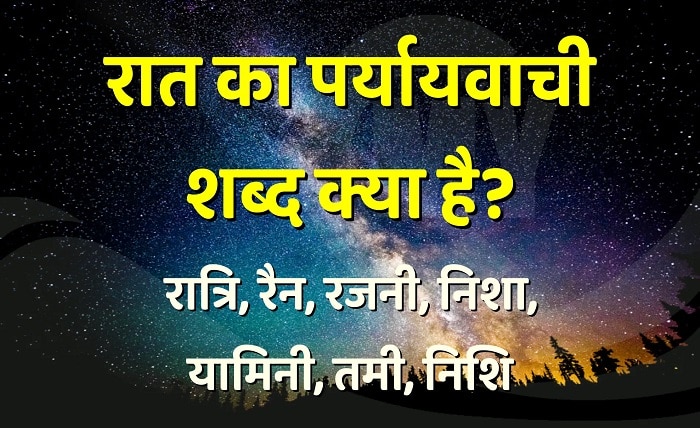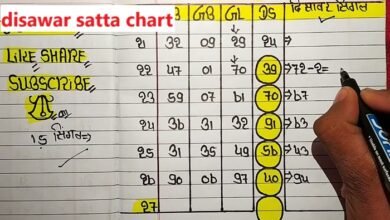
Raat Ka Paryayvachi Shabd: Unveiling the Nuances of Night in Hindi
Introduction
The night has long enthralled poets, writers, and storytellers because it is a period of darkness, peace, and limitless possibilities. With so many synonyms for “raat” (night), Hindi, a language renowned for its extensive vocabulary, can help you write and communicate more effectively. This blog post explores the various meanings and applications of “raat ka paryayvachi shabd,” which are synonyms for darkness.
Beyond Raat: A Spectrum of Synonyms
While “raat” is the most common word for night, Hindi offers a treasure trove of alternatives that paint a more vivid picture of the nocturnal hours. Here are some prominent synonyms and their distinct shades of meaning:
- Nisha (निशा): Often used in poetic contexts, “nisha” evokes a sense of calmness and tranquility associated with the night. It carries connotations of peacefulness and the beauty of the starry sky.
- Rjani (रजनी): This synonym emphasizes the length and duration of the night. It’s often used in phrases like “suhaani rajni” (beautiful night) to describe a pleasant evening.
- Yamini (यामिनी): This word adds a touch of mystery and romance to the night. It’s frequently used in poetry and literature to depict passionate encounters or moments of contemplation under the moonlit sky.
- Tami (तम): Meaning “darkness,” “tami” signifies the absence of light associated with night. It can be used in both literal and metaphorical contexts, conveying a sense of obscurity or secrecy.
- Nishi (निशि): Similar to “nisha,” this term highlights the quietude and stillness of the night. It’s often employed in classical literature and religious texts.
- Sandhya (संध्या): While not strictly “night,” “sandhya” refers to the twilight period between day and night, the time of dusk. It evokes a sense of transition and transformation.
- Shervari (शर्वरी): This less common synonym signifies a dark or moonless night. It’s used to create an atmosphere of suspense or fear in storytelling.
Context is King: Choosing the Right Synonym
The beauty of these synonyms lies in their ability to add depth and texture to your writing. Here’s how to choose the right synonym based on context:
- Formal vs. Informal: “Nisha” and “rjani” are well-suited for formal contexts, while “tami” might be more appropriate for informal settings.
- Mood and Tone: For a peaceful scene, use “nisha” or “yamini.” To create a suspenseful atmosphere, opt for “shervari” or “tami.”
- Poetic Expression: “Yamini” and “nishi” lend a poetic touch, while “sandhya” evokes imagery of twilight.
Exploring Further: Compound Words and Literary References
The world of “raat ka paryayvachi shabd” extends beyond single words. Here are some additional elements to explore:
- Compound Words: Hindi allows combining synonyms to create even more nuanced expressions. For example, “nisha-gandh” (fragrance of the night) or “raat-rani” (queen of the night, a flower that blooms at night).
- Literary References: Many Hindi poems and literary works use evocative night-related words. Studying these references can enrich your understanding and appreciation of the language.
Conclusion
Exploring the realm of “raat ka paryayvachi shabd” allows you to gain a more profound comprehension of the subtleties of Hindi nightlife. Gaining proficiency with these synonyms will enable you to communicate more clearly and artistically. Thus, the next time you recount the evening, go beyond simply using the word “raat.” Select a synonym that will make your writing shine and adequately convey the spirit of the night!
Frequently Asked Questions:
- What kinds of raat ka paryayvachi shabd are there?
“Andhkaar,” “nishith,” “chandni,” etc. are a few examples. - How are the meanings of these synonyms different?
Every synonym has a distinct meaning and symbolizes a particular facet of the night, such as peace, darkness, and moonlight. - Why do Indian culture and custom value the night so highly?
In Indian tradition, the night has spiritual, mythical, and cultural significance that is represented in festivals, customs, and folklore. - What language is it possible to speak that incorporates raat ka paryayvachi shabd?
To become more at ease with these terms, practice using them in everyday conversations, reading books, and creating poetry or prose. - Are these synonyms used differently in different regions?
Indeed, based on regional dialects, customs, and cultural practices, different places may have their own distinct equivalents for the word “night.”




